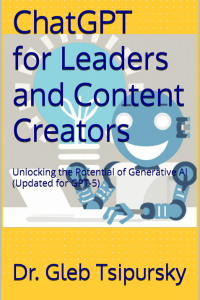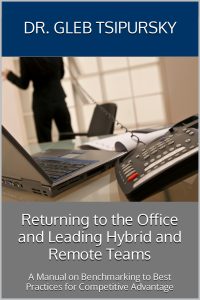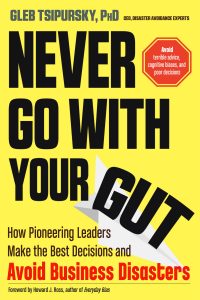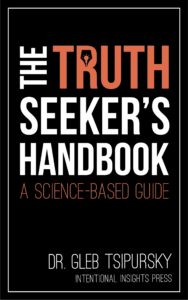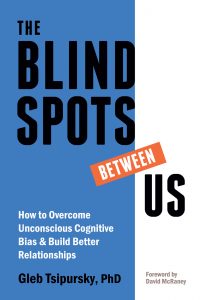For associations, association Gen AI potential lies not just in its capabilities but in how it’s embraced by people. By empowering champions to lead the way, associations can foster trust, collaboration, and enthusiasm, driving meaningful change and ensuring the organization’s mission remains at the forefront in an increasingly digital world.
Embracing failure is essential to a successful AI strategy. It’s not a setback but a catalyst for learning, innovation, and resilience that drives continuous improvement and real business impact in the evolving world of generative AI.
Myth-busting Gen AI shows that with education, transparency, and early wins, associations can replace fear with confidence—empowering staff, volunteers, and members to see AI as a partner in advancing their mission, not a threat.
Sustained AI innovation thrives when businesses invest time, tools, and support to empower experimentation—transforming curiosity into scalable impact and positioning organizations to lead in an evolving, Gen AI–driven future.
The Gen AI promise for associations lies in fostering a learning culture where leaders, staff, and volunteers align strategy, collaboration, and innovation to drive member value, adaptability, and long-term success.
Flexible work will thrive through empowerment, not office layouts. DIY AI—where employees build their own tools—turns flexibility into performance, boosting productivity, balance, and innovation across distributed teams.
Associations that empower members and staff to create intelligent tools—embracing the association build the AI mindset—will transform member engagement, boost retention, and gain a lasting competitive edge in the digital era.
AI fails when goals are unclear—success comes from aligning Gen AI with business priorities, setting measurable outcomes, and balancing structure with flexibility to turn innovation into impact.
Engagement drives success in your Gen AI learning strategy. When staff and volunteers are invested, they turn training into innovation, modeling the culture of continuous learning that powers stronger missions and member impact.
Organizations are moving from DEI to data-driven decision-making, embedding fairness and transparency into everyday processes to reduce bias, build trust, and drive innovation without the political baggage of traditional DEI.
Regular, well-structured check-ins are essential for navigating gen AI disruption, ensuring alignment, fostering innovation, and driving continuous improvement while empowering teams to deliver lasting member value.
Gen AI workshops turn theory into action by immersing employees in real-world problem-solving, building confidence, sparking innovation, and driving results through hands-on learning.
Can Gen AI drive your communications staff to one? Explore the new human roles required to protect brand integrity from AI risks.
AI-accelerated work boosts productivity and quality by over 40%, proving that human-AI collaboration can transform knowledge work if organizations balance adoption with ethical oversight and smart navigation of AI’s limits.
Clear objectives prevent costly Gen AI fails. Aligning projects with mission, fostering experimentation, and measuring impact ensures Gen AI drives real member value and sustainable growth.
A phased Gen AI learning approach ensures smooth adoption, boosts productivity, and builds a culture of innovation through tailored training, feedback loops, and strategic scaling.
Gen AI excellence is achieved when associations form cross-functional committees that align technology with mission, engage stakeholders early, and turn potential resistance into collaboration and lasting impact.
Gamification boosts engagement, retention, and real-world application, making Gen AI training more effective, collaborative, and motivating for employees.
AI association workshops transform curiosity into measurable outcomes by turning hands-on learning into member value, stronger governance, and scalable innovation across chapters and events.
Women back to the office face nearly double the gender discrimination risk compared to remote work—leaders ignoring this could face lawsuits, talent loss, and costly reputational damage.
AI-accelerated associations can deliver results 25% faster and 40% better by piloting AI in key workflows, governing wisely, and scaling proven uses.
Your commute is killing the planet—but flexible work offers a fix. Cutting daily drives slashes emissions, boosts air quality, and supports economic growth, making remote and hybrid work a win for both the environment and productivity.
Will Gen AI replace humans? Not likely—but it will reshape roles. For associations, the opportunity lies in guiding members to adapt, lead, and thrive by combining AI tools with uniquely human skills like ethics, empathy, and strategic insight.
Gen AI projects succeed when grounded in practical, incremental use cases—not in overhyped visions of full autonomy. Avoid the mirage; real value comes from augmentation, not automation.
Gen AI anxiety is real, but associations that address it through open dialogue, empathy, and transparency can transform fear into trust—and position themselves as leaders in innovation and human connection.
Protect yourself from decision disasters by getting our free Wise Decision Maker Course, which includes 8 weekly video-based modules. As a bonus, you'll receive a free copy of our Assessment on Dangerous Judgment Errors in the Workplace when you sign up.



























